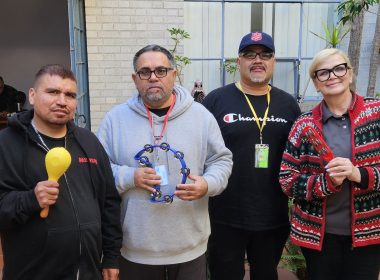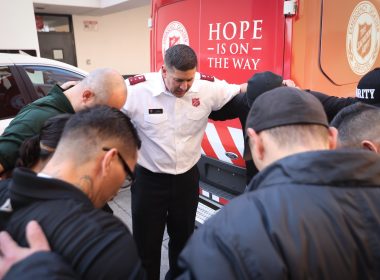by Robert Docter –
AN OPEN LETTER TO THE “FAITHFUL INTERCESSORS”
I like your name. I hope you do, too. I hope you are.
As you no doubt have heard innumerable times during the past two years, intercessors intercede. They act on behalf of another. They’re intermediaries. They intervene. They come between factions or people or points of view. They facilitate the management of problems, issues of concern, difficulties.
We often relate the term to intercessory prayer, but to be a “faithful intercessor,” you’re going to have to be involved in a lot more than prayer. This is not to minimize prayer as an interceding function. It’s important. However, it’s not all there is in being an intercessor.
You are entering a profession that demands that you relate. If you don’t relate, you’ll burn out in 15 minutes. Unfortunately, the people with whom you will be asked to relate are human. They’re very imperfect. Oftentimes they’re not on the same page with each other or with you. They have differences of opinion on what should happen, how it should take place and who should do it. You are the intercessor.
Ask yourself first: “Do these people trust me?” If they don’t trust you, they won’t even want you in any role with them. Trust has to be earned. People achieve it when they reveal the dimensions of their commitment to those around them–when they are willing to make themselves vulnerable on behalf of others–when they sacrifice time and energy to help people–when they are consistent in what they do and genuine in how they relate.
When you intercede with humans, you often take on the role of a negotiator. Your first task is to make sure these people with the differences of opinion communicate. More often than not, this absence of communication only expands the problem. Remember, the message being communicated is a lot more than the words being uttered. Facilitating communication between two humans requires you to sense the feeling and the content of the message. “George, can you hear the hurt in Fred’s comment? Reflect back to him that you sensed that hurt because of what you believed you had to say. Explain to Fred what your intention was. I assume you didn’t intend to hurt him.”
To Fred you might say: “Do you understand what George’s intention was? Report back to him what you think he intended to communicate. Now that you understand he didn’t intend to hurt you, what would you like to hear from him?” Remember, you can’t force someone to change. They need to want to because they perceive a situation in a different way. Your job is to assist them gain the new perception.
In the kind of situation above, avoid taking sides. This doesn’t mean you can always remain impartial. After all, in prayer, we intercede with God on behalf of someone. You might have to stand up for someone in a court matter. In this circumstance, you might become an advocate on his or her behalf. Do not advocate in relation to the facts of the matter–only advocate concerning your relationship with the person.
There might be occasions when you are required to intercede on behalf of someone with law enforcement. You have, for instance, a legal obligation to report an incident of child abuse, battery, or senior abuse to law enforcement. Here you are interceding on behalf of the person being abused–the child, the elderly person, the wife. At the same time, I believe you need to intercede between the abuser and his or her problem. Offer guidance and help while protecting those abused: If you believe the problem is beyond your field of competence, know to whom you can refer.
Another area of intercession involves connecting people with particular principles of morality and spiritual growth. Remember, what you do is far more important than what you say. Let your own behavior preach your sermons. Avoid condemnation. Preach the availability of forgiveness. Help people learn how to apply the principles you seek to communicate.
Well, there’s another word in your name. It’s Faithful. Faithfulness is a function of time. It’s not something that can be discerned. I find it impossible even to predict. Speaking frankly, a persistent thought comes to my mind at every commissioning exercise: “How many of these people will be around in six months? How many will make it through their first appointment? How many truly see this as a lifetime commitment?” I make no judgment of anyone. That’s God’s job, and he didn’t ask for my help.
Know that I will be engaged in intercessory prayer for you–especially over the next few months. God bless.









